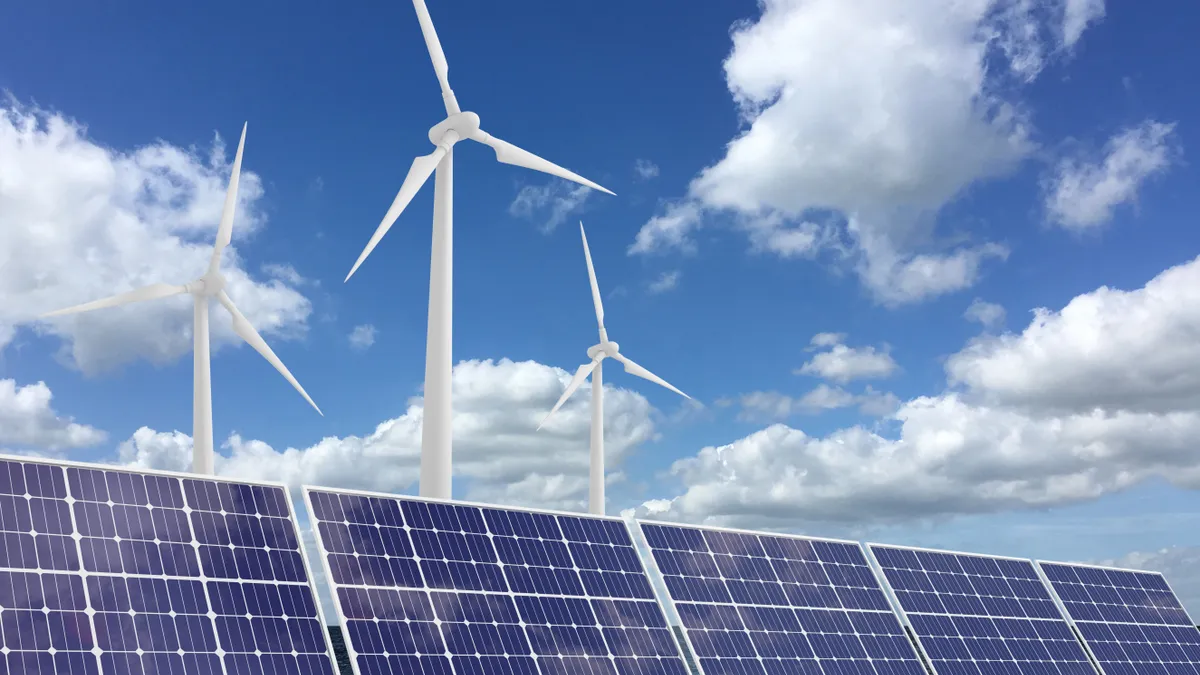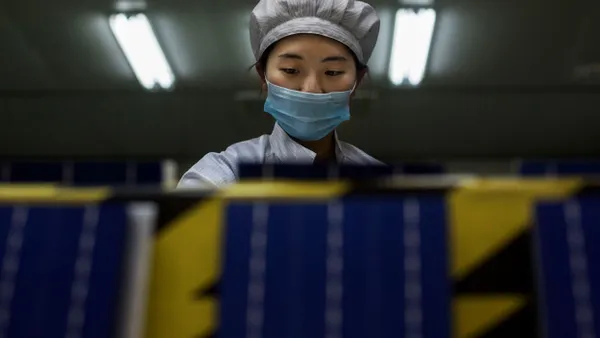Dive Brief:
-
Google, in collaboration with power-purchase-agreement marketplace LevelTen Energy, is piloting a new approach to requesting and negotiating PPAs that the two parties hope will dramatically reduce the time it takes to arrive at a finalized contract.
-
Using its experience with corporate energy procurement, Google has created a template for requesting PPA proposals that is designed to be more agreeable to energy developers. Starting with an initial request that is closer to the final product should reduce back-and-forth negotiations, according to LevelTen Energy chief operating officer Jason Tundermann.
-
LevelTen Energy is working with Google to create a series of software tools based on the pilot project with the goal of reducing negotiation time for other would-be buyers of renewable energy.
Dive Insight:
Google is no stranger to innovation when it comes to PPAs, having pioneered the virtual PPA and introduced concepts such as 24-7 time-matched energy offsetting. Last week, the company introduced another new, but comparatively simple concept: contract standardization.
Today, negotiations for the typical PPA can span 10-14 months, Tundermann said. The transaction typically starts with a prospective buyer issuing a request for proposals that contains terms heavily biased in favor of the buyer. Sellers then respond with proposals that are skewed in the opposite direction. Arriving at an agreement often requires several rounds of negotiations, including months of analyzing whether the proposed terms and conditions are even viable. The length and expense of the process can cause renewable energy projects to fall through in the negotiation stage, particularly in today’s volatile environment, Tundermann said.
Google’s concept, Tundermann explained, is for prospective buyers to start with something a little closer to the likely end result. That’s a bit of an oversimplification – Google’s process has involved analyzing the company’s decade-plus history of PPA negotiations and engineering tools that expedite the needed technical analysis – but that’s the basic idea, he said.
“The end state that LevelTen would support, is the standardization of the PPA,” Tundermann said. “One of the reasons that renewable energy is not coming on the grid fast enough is that the contracts take so long to negotiate, and within that context, project details and input prices and permits and interconnection studies are changing along the way. It is very difficult to undertake a 12-month contract negotiation when input prices are changing underneath you.”
So far, the company said in a blog post released Wednesday, this approach has reduced Google’s negotiating time by roughly 80%.
The concept is still essentially a one-company pilot, so it’s not possible to say for certain that other companies would see the same results. But Tundermann is optimistic that starting with some basic assumptions that are designed to balance the risks and interests of both the buyer and the seller could expedite negotiations and improve PPA success rates — particularly for experienced buyers who are ready to break ground on projects shortly after the negations close.
LevelTen is working on updates to their marketplace software that would incorporate some of the learnings and tools from the Google pilot. Although there’s no set date for the release of the update, Tundermann anticipated it would be available before the end of the year.














